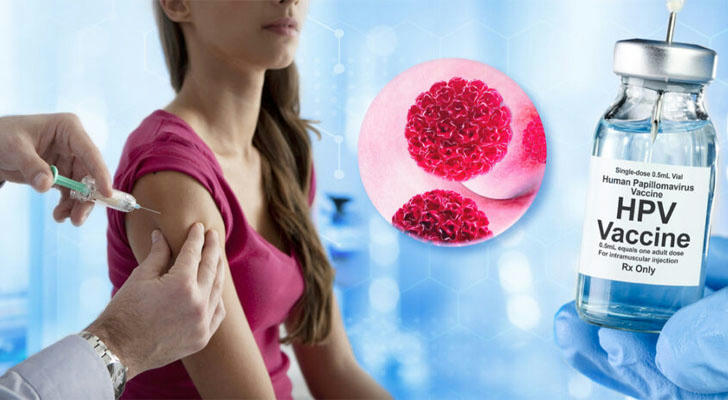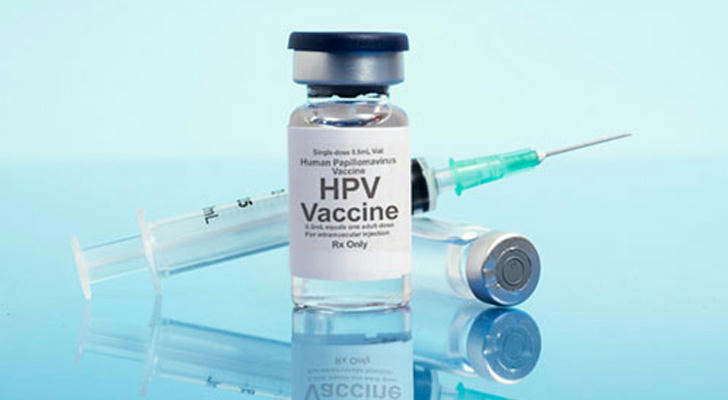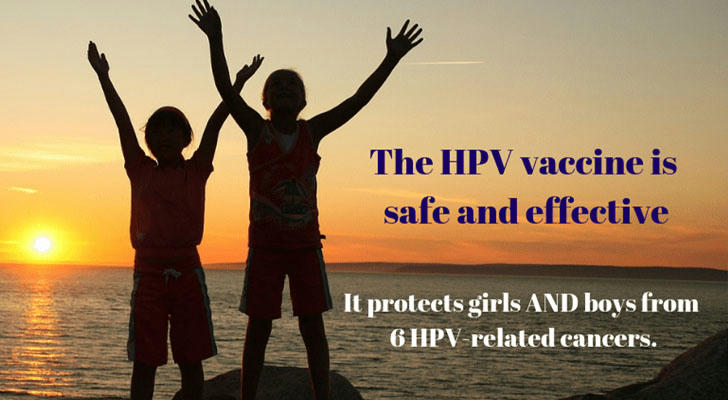HPV Vaccination: A Critical Cancer Prevention Path for US Parents 🛡️
Are you aware that HPV leads to 37,000 annual cancer cases in the US? The HPV vaccine prevents over 90% of these, yet only 51% of teens were up-to-date in 2018. This guide shares accurate info to help parents make informed vaccination choices.

The HPV Epidemic: Understanding the Scale and Severity
HPV is incredibly common. The CDC states that 80% of people will contract HPV at some point. It can cause various cancers, including cervical, throat, and anal cancers. Alarmingly, HPV-related cancers are rising. Unlike most cancers, these are largely preventable through HPV vaccination.
What is HPV?
HPV (human papillomavirus) is a group of more than 200 related viruses. Some types can cause warts while others can lead to cancer. It's primarily transmitted through intimate contact.
How HPV Causes Cancer?
HPV can cause persistent infections that lead to cellular changes. Over time, these changes can develop into cancer. HPV is responsible for several types of cancer, including cervical, oropharyngeal (throat), anal, vaginal, vulvar, and penile cancers.
Statistics on HPV Infections and Cancer Cases
The CDC reports that approximately 37,000 new cancer cases in the US each year are caused by HPV. Despite the availability of a safe and effective vaccine, HPV vaccination rates remain suboptimal.
The Critical Role of HPV Vaccination
HPV vaccination is a safe and effective way to protect against HPV-related cancers. Since its introduction in 2006, over 135 million doses have been administered in the US, with extensive monitoring confirming its long-term safety. Studies have demonstrated significant reductions in HPV infections and related cancers following vaccination.
| Year | Reduction in HPV Infections Among Teen Girls | Reduction in HPV Infections Among Young Adult Women |
|---|---|---|
| 2018 | 88% | 81% |
HPV vaccination is recommended for both boys and girls. It's not just a preventive measure for girls against cervical cancer but also guards boys against various HPV-related cancers and genital warts. The vaccine works best when administered before any exposure to the virus, ideally at ages 11-12. Children vaccinated before their 15th birthday need only two doses, six to twelve months apart. Those starting vaccination at age 15 or older require three doses.
Addressing Parental Concerns and Myths
Despite its benefits, HPV vaccination has faced resistance in the US. Only 51% of US teens were up-to-date with HPV vaccination in 2018. One common misconception is that the vaccine encourages sexual activity, but research shows no link between HPV vaccination and earlier sexual activity. Another concern is safety. However, the CDC and FDA continuously monitor vaccine safety, and no serious adverse effects have been found with the HPV vaccine. Mild side effects like injection-site pain, redness, or swelling are typical and short-lived.

Common Concerns and Evidence-Based Reponses
Myth: The HPV vaccine encourages sexual activity in teens.
Truth: Studies consistently show no association between HPV vaccination and earlier sexual activity. The vaccine is administered to prevent potential health issues, not to influence behavior.
Myth: The HPV vaccine has dangerous side effects.
Truth: The HPV vaccine has been administered to millions of people worldwide and is continually monitored for safety. Most people experience no side effects, and those that do occur are typically mild and short-lived, such as soreness at the injection site, headaches, fatigue, or fever.
Myth: Boys don't need the HPV vaccine.
Truth: Boys can also benefit from the HPV vaccine. It protects them against HPV-related cancers such as throat, anal, and penile cancers, as well as genital warts.
Making Informed Decisions: Steps for Parents
Consult your child's primary healthcare provider about HPV vaccination. Most private insurance plans cover it. For uninsured or underinsured children up to age 18, the Vaccines for Children (VFC) program offers free HPV vaccines.
Steps to Get Your Child Vaccinated
Consult Your Healthcare Provider: Discuss HPV vaccination with your child's healthcare provider. They can provide personalized advice and address any concerns you may have.
Check Insurance Coverage: Most private insurance plans cover HPV vaccination. Check with your insurance provider to confirm coverage details.
Explore Public Programs: For uninsured or underinsured children, the Vaccines for Children (VFC) program provides free HPV vaccines. Contact your local health department or visit the CDC website for more information.
Importance of Timely Vaccination
The HPV vaccine is most effective when administered before any potential exposure to the virus. The recommended age for vaccination is 11-12 years, but it can be given as early as age 9. Catch-up vaccination is also available for those aged 13-26 who were not fully vaccinated when younger.
Real-Life Success Stories
Take Sarah, a mother who initially hesitated to vaccinate her son due to safety concerns. After researching and talking to her healthcare provider, she decided to proceed. "I realized how crucial it was for his long-term health. Now, I'm relieved knowing I've significantly reduced his cancer risk," Sarah shares.
Another example is John, a father of three daughters. He opted to vaccinate his daughters at the recommended age and is glad he did. "I wanted to do everything possible to protect them from HPV-related cancers. Getting them vaccinated was a simple but important step in ensuring their future health," John says.

Conclusion
HPV vaccination is a safe and effective way to protect children against HPV-related cancers. As parents, getting informed and taking action can make a huge difference in your child's future health. If you're considering HPV vaccination for your child, speak to your healthcare provider. They can offer personalized advice and address any concerns you may have. Remember, the ultimate goal is to safeguard your child's well-being and help them grow up healthy and cancer-free.
